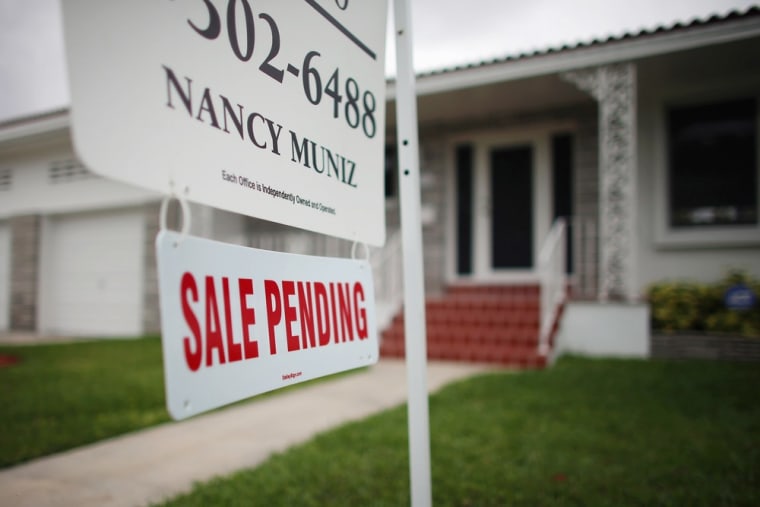Maria Wells said she never intended to be a landlord. She sells real estate; she doesn't invest in it. Now the Florida resident owns two properties. One was her son's, but he had to move to take a new job.
The other was hers, but she got married and moved in with her husband. She can't sell either because she is underwater on both mortgages, so she rents them. Maria is one of a growing cadre of what the Realtors have dubbed, "Accidental Landlords."
"When I get enough equity, I will definitely sell," said Wells, who has been able to manage the properties because the rental market is so good that the income covers the mortgage payments and taxes. She does not use a property manager, as she wants to make sure the homes are well-maintained and keep their value. She's had some good tenants, but also some nightmares.
Read More: Map: Tracking the US Real Estate Recovery)
"One of the tenants certainly surprised me. They decided to change a water filter and go out of town, and then I got the call that 500 gallons of water had gone into my home. Fifty thousand dollars later…," she recalled.
Despite rising home prices, 13 million borrowers, or 25.4 percent of all homeowners with a mortgage, still owe more on their mortgages than their homes are worth, according to a new report from Zillow. So-called "underwater" borrowers would have to pay money into their loans to get out of their homes. Another 9 million borrowers, while not entirely underwater, likely do not have enough equity in their homes to afford to move.
"When the market dropped, many people emerged with a life event prompting their need to move," said Todd Allen, a Realtor in Northern Virginia who has worked with several of these home buyers.
"Fortunately for many in the D.C. metro area with higher incomes and lending guidelines softening a little, individuals and families were able to qualify for the purchase of a second home, but their new landlord status did not necessarily generate positive income—often they incur a loss. Furthermore, many of my own clients have learned many other downfalls in being a landlord."
Arati Patel built a house in Greenville, S.C., in 2007, but when she was forced to move to Washington, D.C., for a new job, she knew she couldn't sell it for enough, so she put it up for rent. In the last several years, she had all kinds of trouble with tenants and even had to have one evicted.
"It was a bit of a nightmare because I don't live in Greenville...I have no desire to go back to Greenville because my life is in D.C.," says Patel. "It was a lot of coordination and I am still trying to collect over $2,000 from my tenants."
Patel finally ended up selling the home recently at a large loss. She didn't want to do a short sale -- i.e. sell the home despite the shortfall between its current value and what's owed on the mortgage -- because the process is long and risky, and she didn't want to damage her credit.
(Read More: Homes Selling at Fastest Pace Since Boom)
While there are no real estimates of how many "accidental landlords" now inhabit the housing market, Realtors say they are one more cause of today's low inventory issue. Usually a buyer is also a seller, making the transaction a wash in terms of inventory, but if the buyer is not a seller, and instead becomes a landlord, inventory takes a negative hit.
Home prices have been rising steadily, up over ten percent from a year ago, according to the latest reading from CoreLogic. Prices are still well below where they were during the housing boom, when so many people bought into the market.
As millions come above water, others are far below. Forty-eight percent of borrowers in Atlanta are underwater, 37 percent in Miami, 54 percent in Las Vegas and 37 percent in Sacramento.
It will take many years of price gains for these homeowners to see the light of equity.
